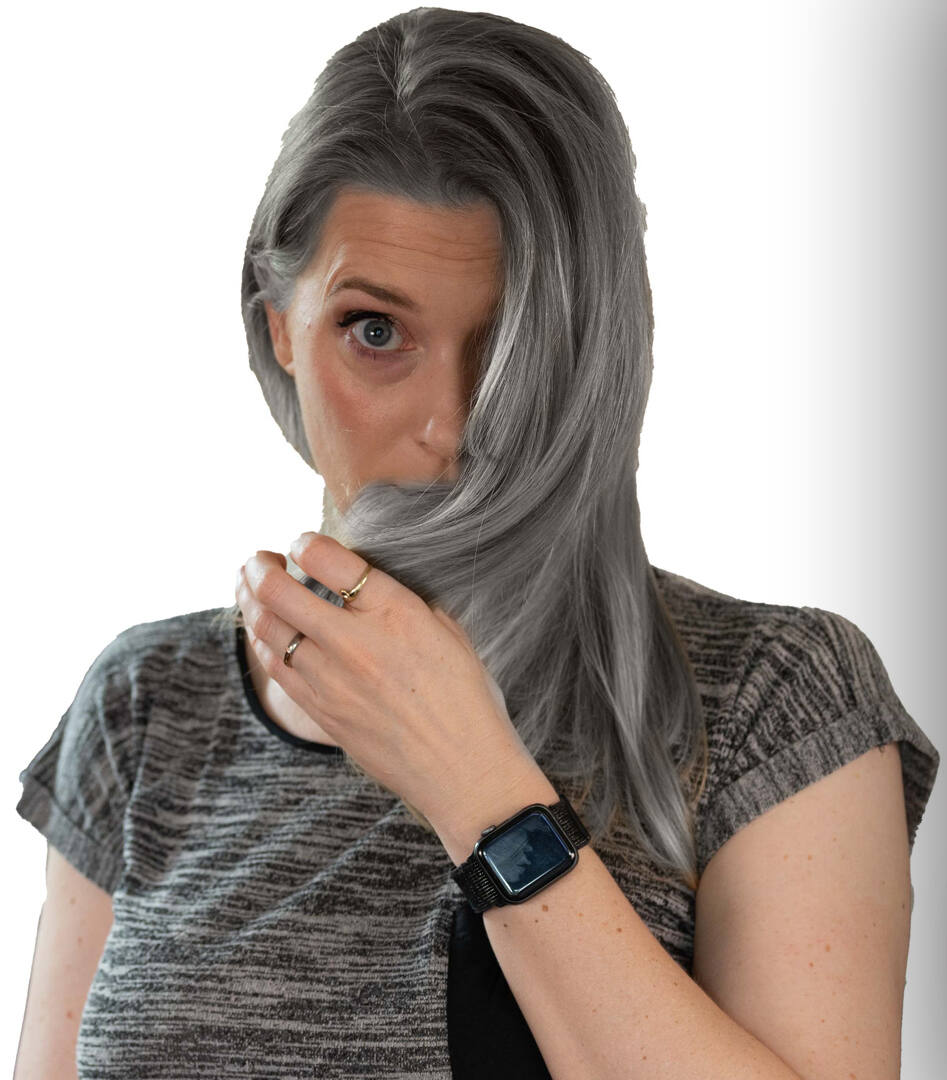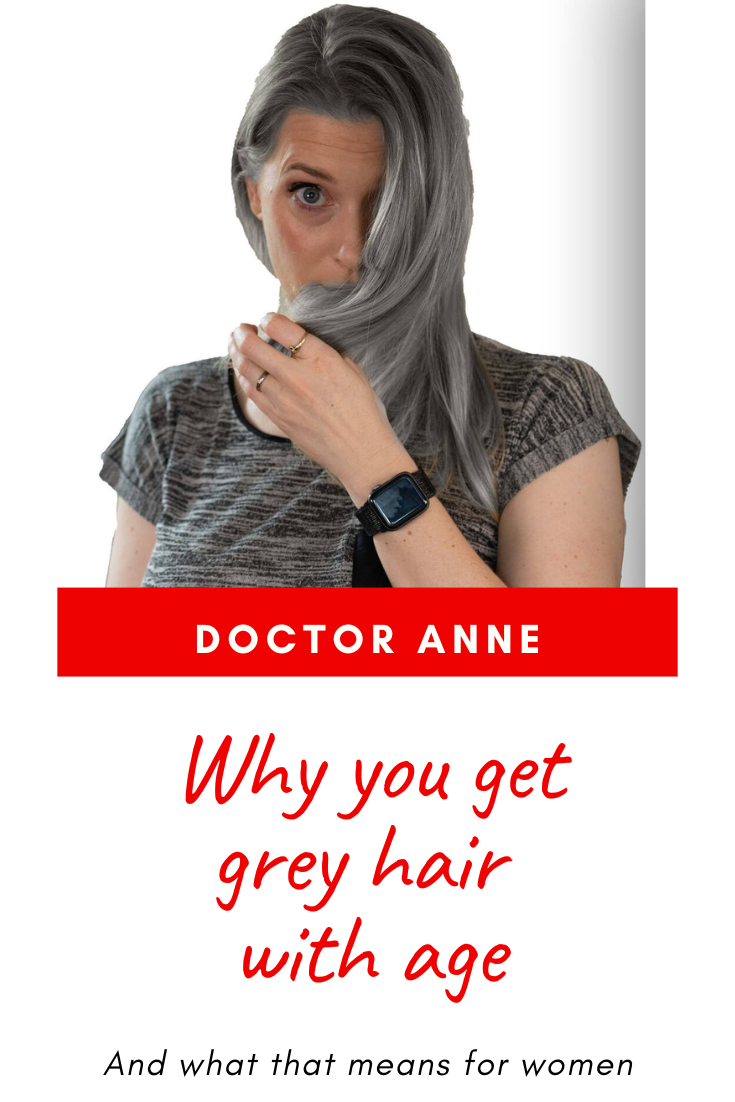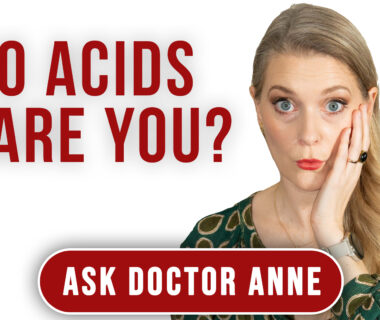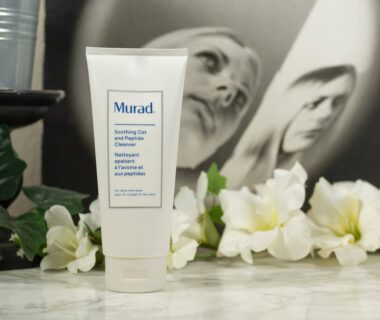ADVERTISEMENT INFO: NO PRODUCTS ARE DISCUSSED IN THIS BLOGPOST, BUT LINKS USED ARE AFFILIATE LINKS. I RECEIVED NO MONEY TO WRITE THE BLOGPOST. PLEASE READ DISCLAIMER
I went to my 25 years Abitur Treffen, roughly translated to High School Reunion, a few weeks back and one of the topics that popped up was: “Are you going grey already and if you do, do you color your hair?”

I mean, these kinds of meet-ups inspire a lot of random conversations, but with all of us being in our mid-40s now, it probably was inevitable to discuss the signs of aging you notice in people that in your mind still just turned 19.
Turns out that most of us were going grey, and with one exception everyone that was did color their hair. So I figured, it might be a good opportunity to talk about why we go grey with age and to explore what that means in terms of how we feel about ourselves.
How is your hair color determined?
Our natural hair color is determined by our genetics, with a wide variety of genes influencing the final outcome. The main pathway though is through melanin production, either eumelanin or pheomelanin. The default setting is production of eumelanin, with a high amount being produced leading to black hair, a moderate amount leading to brown hair and a small amount to blonde hair. If the gene responsible for this, the MC1R gene, has only one functioning copy, only a part of the melanocytes have the necessary receptor triggered leading to eumelanin production and the others produce pheomelanin, which gives the hair color a red hue. If no functioning copies are present, there is only pheomelanin, leading to bright red hair.
So genetics determine your natural color, but obviously lifestyle factors like the amount of time spent in the sun or at the hairdressers influence the actual outcome.
My hair for example is 20% genetic and 80% hairdresser.
What determines when you get your first greys?
Now that we know that the type and amount of melanin is responsible for our hair color, it is basically self-explanatory that the loss of that color, going grey or going white, is due to a loss of melanin production in the hair follicle. It is also determined by the loss of another enzyme, catalase, that breaks down hydrogen peroxide naturally occurring in our hair – yes, the same that is used to bleach in the salon. With age the amount of catalase we have declines, so more hydrogen peroxide is left and your hair gets lighter.
The most important factors in when this happens is genetics and race: Caucasians start going grey in their mid-30s, Asians in their late 30s and Africans in their mid-40s, and your individual starting time is usually close to that of one of your parents.
I noticed my first greys at around 40, which is late for a Caucasian, but given that I have been highlighting my hair for decades and that individual grey hairs are hard to notice in blondes it might have been much sooner. For my mother and sisters it is about the same – we all have the same natural color.
By now I have broader greyish-white streaks especially around my temples that I color over when I go get my highlights. I don’t mind them much, as right now they look just like highlights, but I don’t think I would feel comfortable with a full head of grey hair.
(More info: Olaplex and how it works)
Does lifestyle influence your hair turning grey?
While genetics play the most important role, certain lifestyle factors seem to influence how quickly you go grey as well. The data here is however inconclusive and even where we have established a stronger connection, for example with smoking, the influence is still only a fraction of that of your genetic disposition.
There are some medical conditions, like issues with the thyroid gland or a Vitamin B12 deficiency, that might cause premature grey hair, and in general things that increase oxidative stress, like smoking or, well, stress, might influence how early the melanocytes in the hair follicle die. Going grey overnight due to a stressful life event, the so called Marie Antoinette Syndrome, is a very rare occasion – if it really happens, that is, it might be a medical myth altogether. Far more likely is that after a very stressful phase in your life you, one day, look in the mirror and see a lot of new grey that before you simply didn’t notice because you were preoccupied with other stuff.
How are people with grey hair perceived in society?
Over the last few years, we have seen many younger people either embrace their prematurely grey hair or artificially dye their hair grey or white, which is an interesting shift away from the default state I grew up with, when grey hair was associated with grandmas only.
When I looked further into that trend, I came across an interesting study by Cecil et al, published in the Journal of Women & Aging with the compelling title “Gendered ageism and gray hair: must older women choose between feeling authentic and looking competent?”, which I will reference below. (More info: Internalized ageism – Why am I so hard on myself?)
Other than pointing out the obvious difference between how grey hair is perceived in aging men – very distinguished, sophisticated and desirable – as opposed to in aging women, the authors looked at how women that decided to go grey felt people reacted to them.
It comes as no surprise that, generally speaking, a woman with grey hair is perceived as older and consecutively as less sexually attractive, less competent in the work place and just in general less important. On the other hand there was the pressure to age gracefully, which meant in terms of hair that your hair shouldn’t be very obviously dyed, because that would be considered “a desperate attempt to look younger”, as frowned upon as “letting yourself go” and embracing your greys.
Now there are positive attributes for women with grey hair as well: You are considered more gentle, more caring and emotionally well-balanced and people are more likely to turn to you for advice – in emotional and family affairs, that is, certainly not with political or technical questions. The grandmother role, so to speak.
Nothing against grandmothers and the wisdom that might (or might not) come with age, but I feel like my mid-30s, or even mid-40s, are quite early to move on from being perceived as competent in the workplace to that. I mean, given the average life expectancy that is more than half of my life left. So most women react by dying their hair until, one day, they feel the desire to embrace their greys. Those that do embrace their greys earlier than others do, according to the study, shift their focus to other features attributed with youthfulness, like more fashionable clothing, makeup and bolder hair cuts, probably to counteract the impression they are letting themselves go.
Now I don’t have a conclusion here, or an appeal to either embrace your greys or to keep coloring your hair, that is a very personal choice to make. I just wanted to draw awareness to how the color of our hair for us as women is apparently much more than personal preference, but once again influences our role in society – because awareness might trigger change.
I am not sure how my hair journey will develop – right now I highlight my hair because I feel my natural color is just too ashy for me to feel comfortable. Maybe that will change with more grey streaks, maybe not. My mother just one day stopped to color her hair and cut it all off, from chins length to a pixie.

Reference:
Cecil, V., Pendry, L. F., Salvatore, J., Mycroft, H., & Kurz, T. (2022). Gendered ageism and gray hair: must older women choose between feeling authentic and looking competent? Journal of Women and Aging, 34(2), 210–225. https://doi.org/10.1080/08952841.2021.1899744
Shop my favorite hair care here (affiliate links)
Don’t forget to check out the Discount Code Page on top if you want to save some money on your next skincare purchase.
If you want to get a vote in the next Ask Doctor Anne Topic, Ingredient Spotlight or product I review, don’t forget you can head over to my Patreon account to get more involved!


